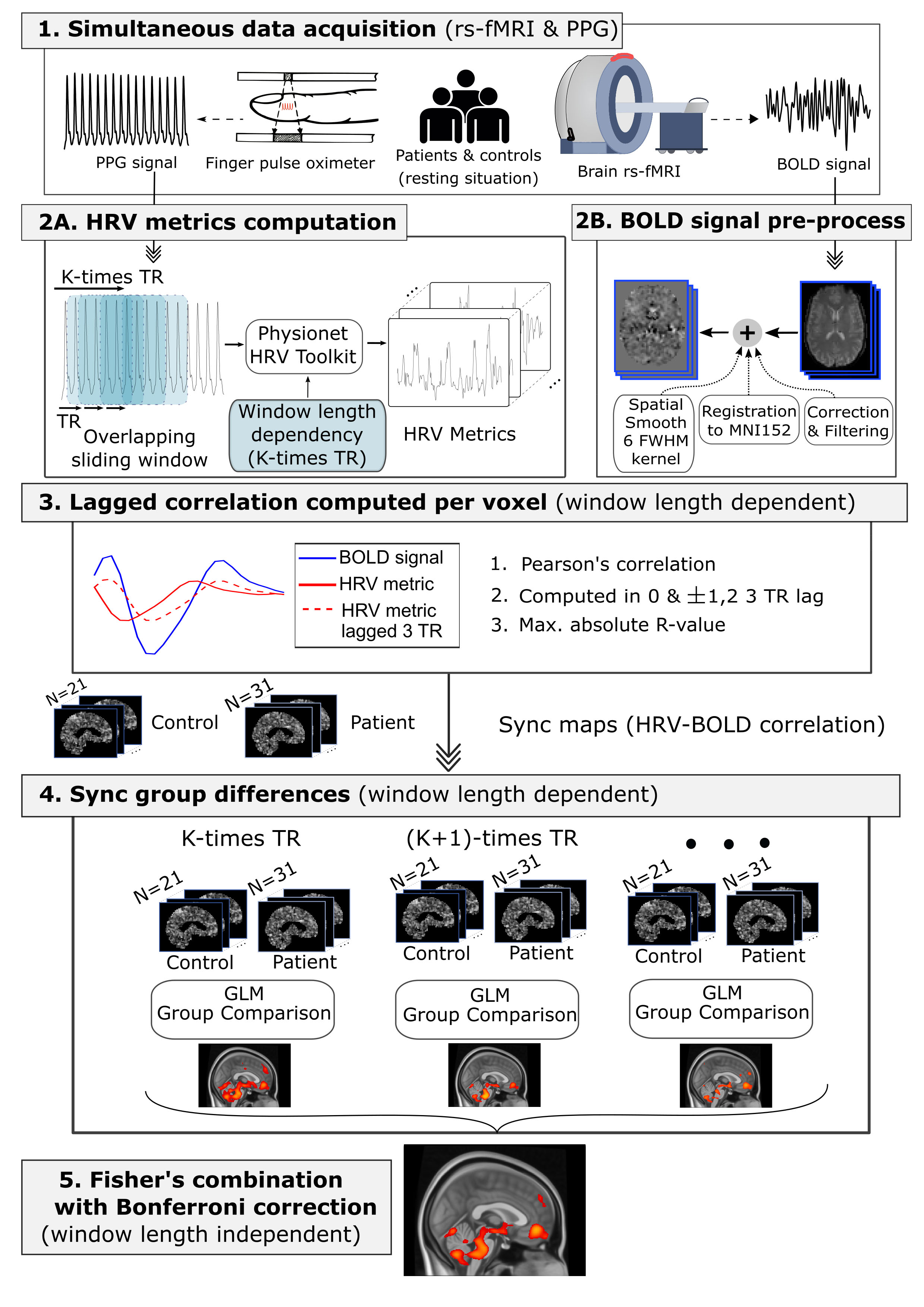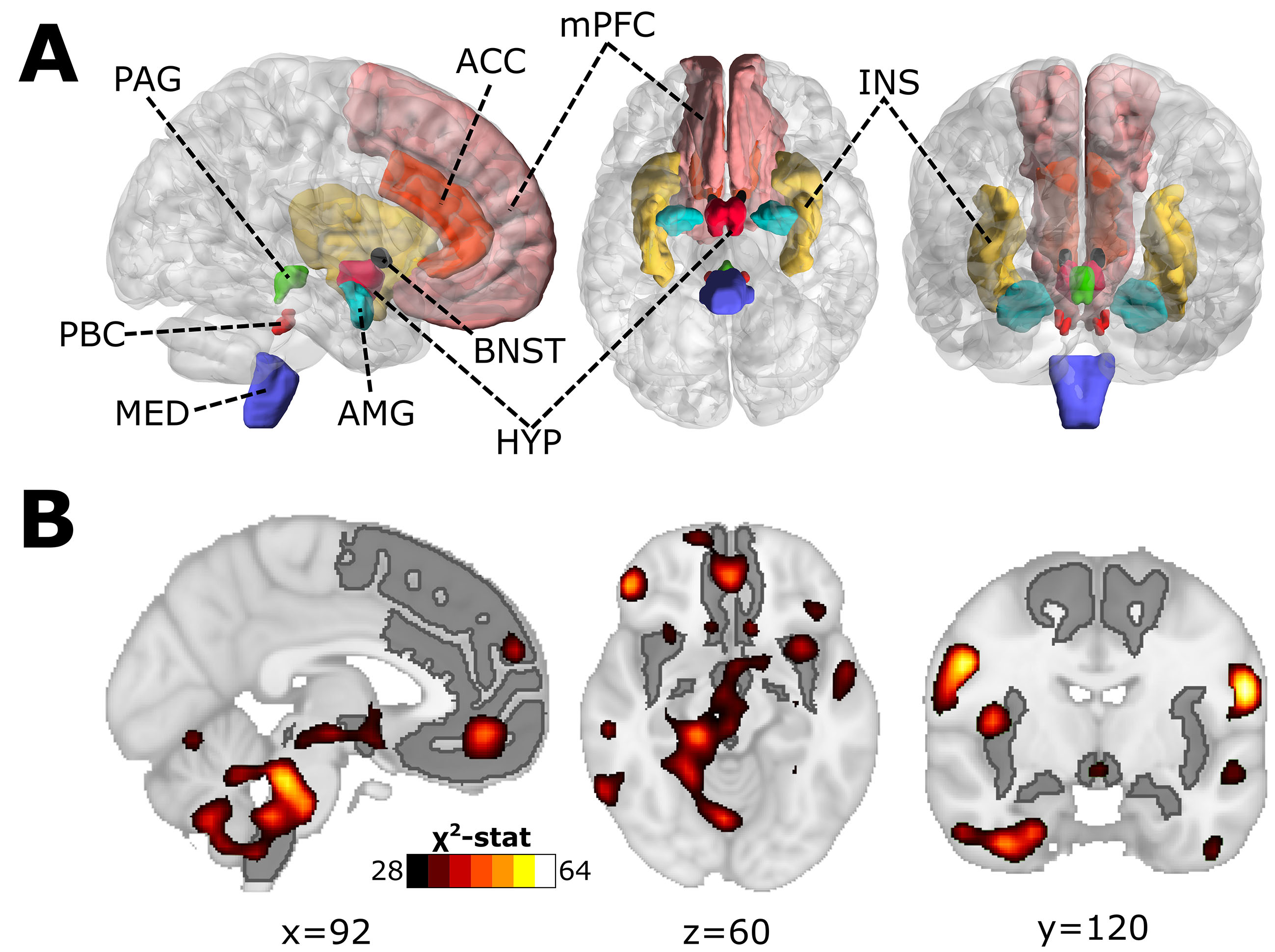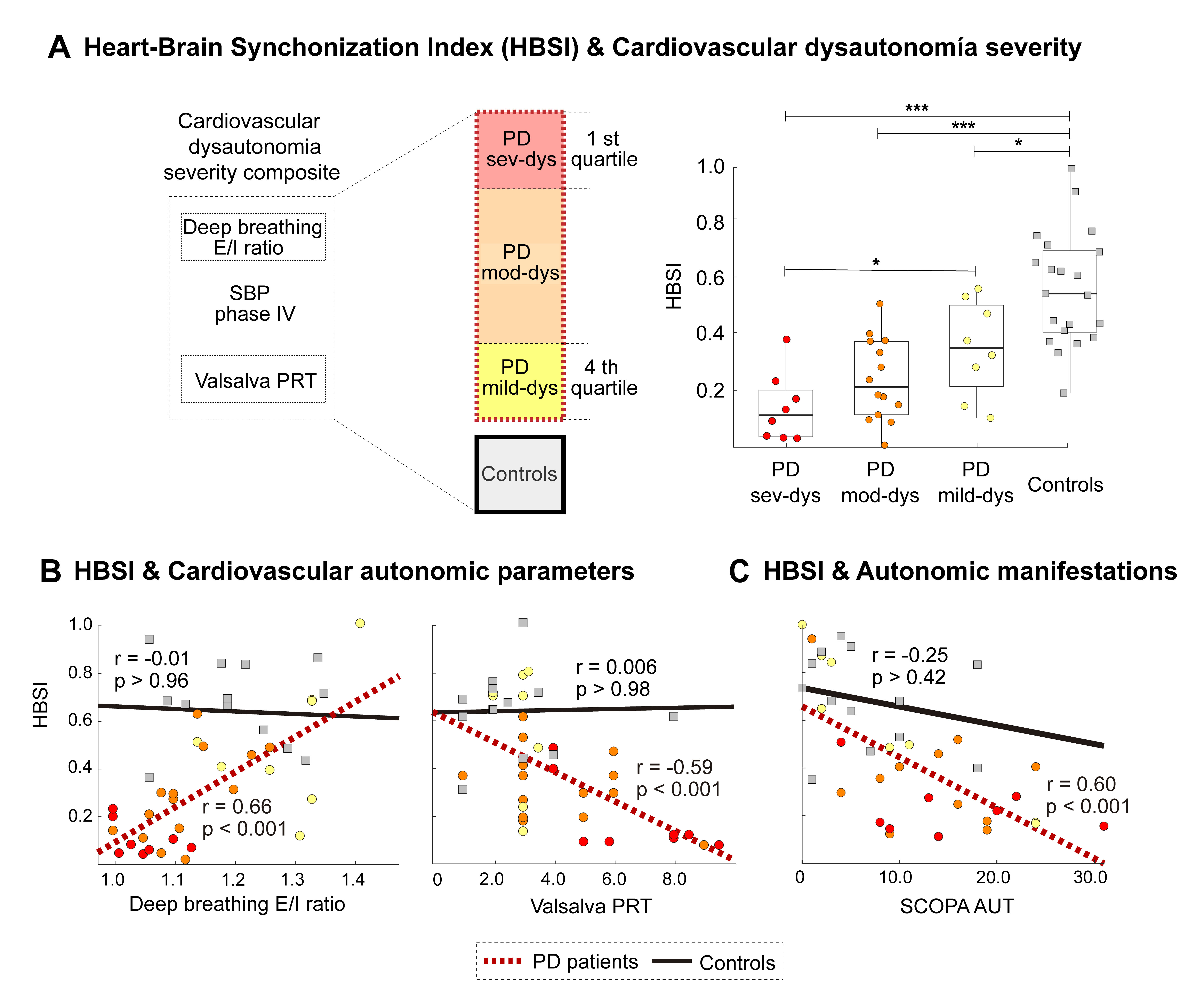Category: Parkinson's Disease: Non-Motor Symptoms
Objective: To evaluate the alterations in the synchronization between central autonomic network (CAN) activity and a broad set of heart rate variability (HRV) parameters reflecting both sympathetic and parasympathetic activity, and to quantify the relationship between heart-brain synchronization abnormalities, and their association with relevant autonomic clinical outcomes of Parkinson’s disease (PD).
Background: HRV abnormalities are potential early biomarkers in PD but their relationship with CAN activity is not fully understood.
Method: We analyzed the synchronization between HRV and brain activity in 31 PD patients and 21 age-matched healthy controls using blood-oxygen-level-dependent (BOLD) signals from resting-state functional brain MRI and HRV metrics from finger plethysmography recorded for 7.40 minutes. We additionally quantified autonomic symptoms (SCOPA-AUT) and objective autonomic cardiovascular outcomes (blood pressure and heart rate) during deep breathing, Valsalva and head-up tilt, which were used to classify dysautonomia severity. HRV and BOLD signals synchronization (HRV-BOLD-sync) was evaluated with Pearson lagged cross-correlations and Fisher’s statistics for combining different window-length-dependent HRV-BOLD-sync maps, and its association with dysautonomia outcomes was assessed.
Results: HRV-BOLD-sync was significantly (p<0.05) lower in PD than in controls in various brain regions within CAN or in networks involved in autonomic modulation. Moreover, the heart-brain synchronization index (HBSI), which quantifies at a single-subject level the statistical significance of heart-brain synchronization degree, was significantly lower in severe than in mild dysautonomia patients, and in both patient groups than in controls. Importantly, HBSI was associated in PD, but not in controls, with Valsalva pressure recovery time (sympathetic) and deep breathing expiration/inspiration ratio (parasympathetic) and SCOPA-AUT.
Conclusion: Our findings support the existence of heart-brain desynchronization in PD and its association with clinically relevant autonomic outcomes.
To cite this abstract in AMA style:
M. Iniguez, A. Jimenez-Marin, A. Erramuzpe, M. Acera, B. Tijero, A. Murueta-Goyena, R. Del Pino, T. Fernandez, M. Carmona‑abellan, A. Cabrera, JC. Gomez‑esteban, J. Cortes, I. Gabilondo. Heart-brain synchronization breakdown in Parkinson’s disease [abstract]. Mov Disord. 2022; 37 (suppl 2). https://www.mdsabstracts.org/abstract/heart-brain-synchronization-breakdown-in-parkinsons-disease/. Accessed December 31, 2025.« Back to 2022 International Congress
MDS Abstracts - https://www.mdsabstracts.org/abstract/heart-brain-synchronization-breakdown-in-parkinsons-disease/



